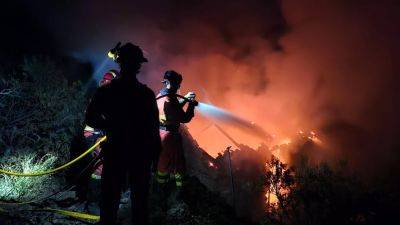Why Colorado moved to Big 12 and how shift affects Pac-12 - ESPN
On July 21, Pac-12 commissioner George Kliavkoff took the stage for media day at a critical time for his conference. USC and UCLA were already on their way out, and Colorado was rumored to be next as the league struggled to complete a TV deal.
Kliavkoff told a room full of media members and anyone watching that «our schools are committed to each other and the Pac-12.»
While Kliavkoff spoke, Big 12 commissioner Brett Yormark was wrapping up a regularly scheduled Zoom call with his athletic directors. As he completed an otherwise mundane meeting, he foreshadowed the big news to come without mentioning any school by name or any details.
«He said, 'Guys, I'm not going to tell you anything,'» a source on the call said. "'I'm just feeling really good about it. If it doesn't happen next week, then it's probably not going to happen for a while. But you'll find out five minutes before it happens.' And that's basically what happened."
The near simultaneous unfolding of two vastly different messages from two of the most powerful people in college athletics on a sweltering Friday in July was uncanny. Five days later, the Big 12 presidents and chancellors held a private call during which they voted unanimously to accept Colorado as a member. The next day, on July 27, the Colorado board of regents voted in favor of the move in a public videoconference — a swift formality that lasted less than 16 minutes and put an end to months of speculation about the future home of the Buffaloes.
For the third straight summer, conference realignment has been one of the biggest stories in college athletics — and for the second straight year, the Pac-12 is the league scrambling to pick up the pieces. In 2021, Big 12 co-founders Oklahoma and Texas







